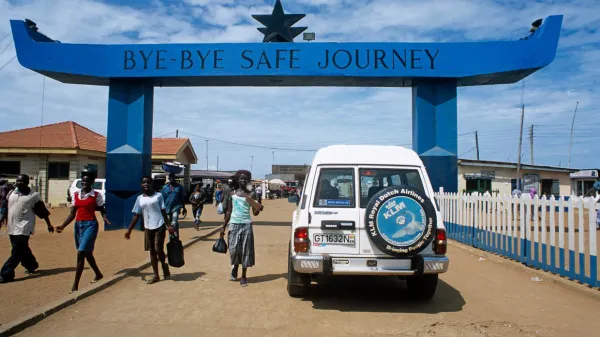Protection comes in all manner of shape and form, and this is seen in the level of security an individual, institution and even a nation delivers to the things they care about.
Acts of terrorism have become a bane and a thorn in the flesh to most thriving economies. Among the many challenges in today’s fight against terrorism are the issues of how to detect, deter and detain terrorists who seek to cross international borders.
The truth is whether the concern is citizens returning home from a conflict area, suspected terrorists moving for indoctrination or training, or known terrorists crossing land, sea and air borders, the establishment of effective border security and functional border management is very vital for every country.
As it stands, there are myriad, wide-ranging, and long-term impacts of terrorism due to porous borders across the world. However, the issue of such magnitude is even more pronounced on the African continent.
This is so because with coups seemingly becoming a ‘party’ organized to overthrow an existing government, especially over economic concerns, it has opened up the borders of relatively peaceful countries to terrorist invasions, as refugees who seek havens in such countries are most often than not terrorist cladded in ‘refugee’ apparel.
Ghana remains one of the most peaceful countries in sub-Saharan Africa despite the growing instability in the region, which are born out of violent extremism, terrorist attacks and military coups.
In this current dispensation of infiltrated attacks, which are sometimes unwarranted, but almost always intended to cause one havoc or the other, thereby exposing the vulnerabilities of particularly a country, it has become more crucial than ever before to address it head-on.
Addressing border security issues
Owing to this, the Minister for Interior, Ambrose Dery, has assured that the government has taken steps to ensure adequate security at the nation’s entry points.

The steps taken include resourcing the Ghana Immigration Service to be able to detect threats posed by terrorists.
He explained that “border security has become a major national security concern” within the West Africa sub-region, and Ghana is no exception.
“The sophistication and increasing levels of transnational crimes, including terrorism, call for urgent attention in the management of our borders. The government, being aware of the threats posed by these undesirable elements at the various borders, especially at our Northern frontiers, is doing everything to support this Ghana Immigration Service.”
Ambrose
The safety of Ghana’s border patrol unit should be intelligence-led with highly trained personnel and modern technology to address the emerging threats.
Moreover, he indicated that the nature of transnational crimes, including terrorism calls for top-notch intelligence-led approach to tackle.
“I’m sure recently you are aware that some armored equipment has been set up or around the country. But the safety of the border patrol unit should be intelligence-led with highly trained personnel and modern technology to address the emerging threats to border and national security.”
Ambrose Dery
Meanwhile, President Akufo-Addo has revealed that works on the construction of military operating bases along Ghana’s northern frontiers has reached an advanced stage of completion, insisting that the country was taking no chances in respect of securing its territorial integrity.
The facilities, comprising twelve military forward operating and three logistic bases, aim to strengthen the Army’s capabilities to contain the threats emanating from across the country’s frontiers.
President Akufo-Addo explained that eminent threats in the northern part of Ghana have necessitated the establishment of forward operating and logistics bases along the entire northern border.
On the other hand, a Special Representative and Head of the UN Office for West Africa and the Sahel (UNOWAS), Leonardo Santos Simao, indicated that the situation in West Africa and the Sahel has deteriorated against a backdrop of shrinking civic and political space.
He noted that “crisis in the Sahel requires tangible and long-term support to stamp out the scourge of terrorism and address the Region’s burgeoning humanitarian crisis”.
With Ghana already dealing with internal conflicts of its own in the Northern region, particularly Bawku and other hotspot areas, it cannot afford to expose itself further to any attack whether externally or internally as it portends to be breeding grounds for terrorist activities to thrive.
Going forward, proper border security and management can significantly reduce the threat of terrorists and must be part of the country’s Counter Terrorism Strategy.
READ ALSO: Parliament Loses Fight Against Absenteeism























